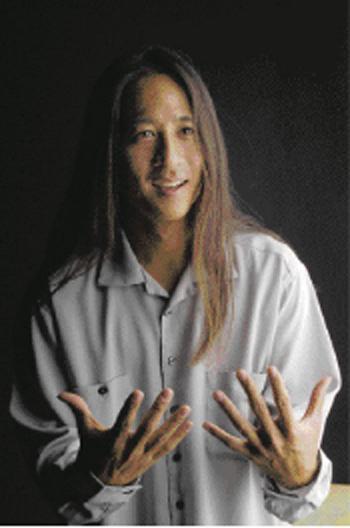LIHU‘E — This spring, Kaua‘i High School qualified for a grant by the state to bring world-renowned slam poet, Kealoha, to work with more than 60 students. Over the past month, students have spent three sessions writing poems. “I want
LIHU‘E — This spring, Kaua‘i High School qualified for a grant by the state to bring world-renowned slam poet, Kealoha, to work with more than 60 students. Over the past month, students have spent three sessions writing poems.
“I want you to know that you are capable of anything,” Kealoha said in a press release. “I want your poems to rock.”
One strategy he uses to prompt students to begin a poem is through inquiry. Once students have begun to write, he asks questions like, “What do you hear?” “What is behind you?” “Is there anyone with you?” and “What are you doing with your hands?”
This pushes students to delve into memories of sensual imagery to create poems that are visually engaging.
Kealoha founded “Hawai‘iSlam,” “Youth Speaks Hawai‘i” and “First Thursdays,” the largest registered and certified slam poetry competition in the world — with an average attendance of 600.
Kealoha praises one past teacher for her methods.
“(Mrs. Chin) gave us the chance to think on our own,” he said. “She gave us the time to ask good questions. We found ourselves staying after school with her just to learn more. And we were only 10.”
This sums up his own approach to teaching — the teacher facilitates and the students must work. Slam poetry is not just reading poems but performing them. The first three sessions were writing and the fourth was for memorization. His method seemed peculiar at first: He had students memorize their poems backwards. They began with the last line and memorized the seven preceding lines. Then students repeated them aloud, wrote and rewrote them, until every word was right.
He returns in April and May for two more sessions to help students with the memorization as well as to learn how to use the body as an instrument of the poem.
The students who have worked with him are ecstatic.
“I didn’t know that I could actually write poetry,” said Torrie Quitog, who wrote a poem about the funeral of her “Paka.”
The excitement of poetry is spreading throughout the school.
“Can you give me a pass to come and work with Kealoha?” asked Devin Gandia of teacher Laurie Mazzoli.
This is what teachers have been hearing from ninth to twelfth grade students.
In April, Mazzoli and fellow teacher Paul Cline will host an annual poetry slam for their classes every Wednesday during National Poetry Month. Many students write poetry and the teachers rarely see it, let alone hear it.
“This gives the students the opportunity to share their words with the world,” Mazzoli wrote in an e-mail. “And with Kealoha’s help, they will be performing better than they ever have before.”


